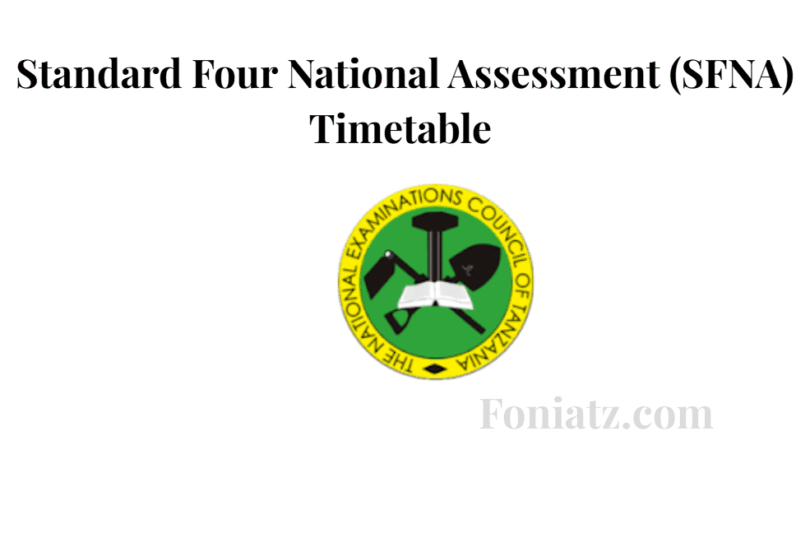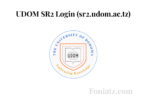Announcement: 2025 Standard Four National Assessment (SFNA) Timetable & Preparation Guide
The National Examinations Council of Tanzania, under the Ministry of Education, Science, and Technology, has officially released the timetable for the Standard Four National Assessment (SFNA). This assessment is scheduled to take place in October 2025.
All schools, parents, and candidates are advised to take note of the following schedule and the essential instructions provided.
Official SFNA 2025 Timetable
The assessment will be conducted over two consecutive days:
Wednesday, October 22, 2025
- 8:00 AM – 9:30 AM: Science (Sayansi)
- 10:30 AM – 12:00 PM: Mathematics (Hisabati)
- 2:00 PM – 3:30 PM: Geography and Environment: Arts and Sports (Jiografia na Mazingira: Sanaa na Michezo)
Thursday, October 23, 2025
- 8:00 AM – 9:00 AM: Kiswahili
- 10:00 AM – 11:00 AM: English Language
- 11:30 AM – 12:30 PM: French Language / Lugha ya Kiarabu / Lugha ya Kichina
- 2:00 PM – 3:30 PM: Historia ya Tanzania na Maadili
Essential Instructions for All Candidates and Supervisors
- Arrival Time: All candidates must be inside the assessment room half an hour before the scheduled start time for their paper. Candidates who are more than 30 minutes late will not be permitted to take the assessment.
- Candidate Identification: Candidates must write their full name and assessment number correctly and clearly on their answer sheets.
- Supervisor’s Instructions: All candidates are required to listen carefully and adhere to all instructions given by the assessment supervisors.
- Academic Integrity: Any candidate found to be involved in any form of cheating or dishonest practice will have their assessment results cancelled. Students must rely on their own knowledge and preparation.
- Verification of Papers: Supervisors must ensure they have the correct examination paper for the scheduled time by reading the subject name on the envelope. A student should be asked to read the subject name aloud from the envelope before it is opened to confirm it is the correct paper for that session. In the event of any discrepancy between the instructions on the assessment paper and the timetable, the instructions on the assessment paper shall prevail.
Provisions for Candidates with Special Needs
The National Examinations Council of Tanzania has made special provisions to ensure an equitable assessment environment:
- For the Mathematics paper, candidates with special needs (including those who are Visually Impaired, have Low Vision, or are Deaf) will be granted an additional
20 minutes for every hour of the assessment.
- For all other subjects, these candidates will be granted an additional
10 minutes for every hour.
- Candidates with low vision will be provided with specially prepared assessment papers featuring enlarged print.
Related Topic: Strategies for Effective Assessment Preparation
Success in the Standard Four National Assessment is a result of consistent effort and thoughtful preparation. To assist students, parents, and teachers, we recommend the following strategies to help candidates prepare effectively for these critical assessments.
1. Develop a Balanced Study Timetable
Just as the assessment has an official schedule, students should have a personal study timetable. This schedule should be realistic and balanced, covering all the subjects listed in the timeline: Science, Mathematics, Geography and Environment, Kiswahili, English Language, and other relevant subjects. Allocate more time to subjects a student finds challenging, but do not neglect those in which they are confident. A reasonable timetable includes short breaks, similar to the “Mapumziko” scheduled during the actual assessment days, to prevent burnout and improve focus. Consistency is more effective than last-minute cramming.
2. Adopt Active Study Techniques
Passive reading is often not enough for effective learning. Encourage students to engage in active studying.
- Practice with Purpose: Work through problems, especially in subjects like Mathematics. Use practice questions from textbooks and other resources to gain a deeper understanding of the application of concepts.
- Summarize and Teach: After studying a topic, students should attempt to summarize the key points in their own words without referring to the book. An excellent way to test understanding is for the student to try to “teach” the concept to a parent or a friend.
- Use Visual Aids: For subjects such as Science, Geography, and Environment, creating mind maps, diagrams, and flowcharts can aid in understanding and recalling complex information and processes.
3. The Crucial Role of Health and Wellness
A healthy body supports a sharp mind. Preparation should not come at the cost of a child’s well-being.
- Adequate Sleep: Ensure the student gets at least 8-10 hours of sleep per night. A well-rested brain is better at concentrating, understanding, and recalling information.
- Nutrition: A balanced diet rich in fruits, vegetables, and proteins provides the necessary energy for studying. Avoid excessive sugar and processed foods, which can lead to energy crashes.
- Physical Activity: Regular playtime or participation in sports is essential. Physical activity helps reduce stress, improves mood, and can boost cognitive function. This aligns with the inclusion of “Sports” in the curriculum itself.
4. The Role of Parents and Guardians
Parental support is a significant factor in a child’s academic success.
- Create a Conducive Environment: Provide a quiet, clean, and well-lit space for studying, free from distractions like television or excessive noise.
- Offer Encouragement: Motivate your child by acknowledging their effort, not just their grades. A positive and encouraging attitude can build their confidence and reduce assessment-related anxiety.
- Stay Involved: Monitor their progress gently with the study timetable. Help them with difficult topics or arrange for extra help if needed. Ensure they understand the importance of following all instructions, a key point emphasized by the Examinations Council.
5. Final Preparations and Assessment Day Conduct
In the final days leading up to October 22nd, the focus should shift from learning new material to revision and reinforcement.
- Review and Revise: Go over summary notes, mind maps, and practice questions. Solidify understanding of key concepts.
- Prepare Materials: The night before each assessment day, help your child organize all the necessary materials, including pencils, erasers, and any other required items. This avoids a last-minute rush and anxiety.
- Stay Calm: On the day of the assessment, a calm and positive mindset is crucial. A good breakfast is essential. Remind them to read the instructions on the paper carefully and to manage their time wisely, allocating time for each question. Reiterate the importance of integrity and the serious consequences of cheating.

